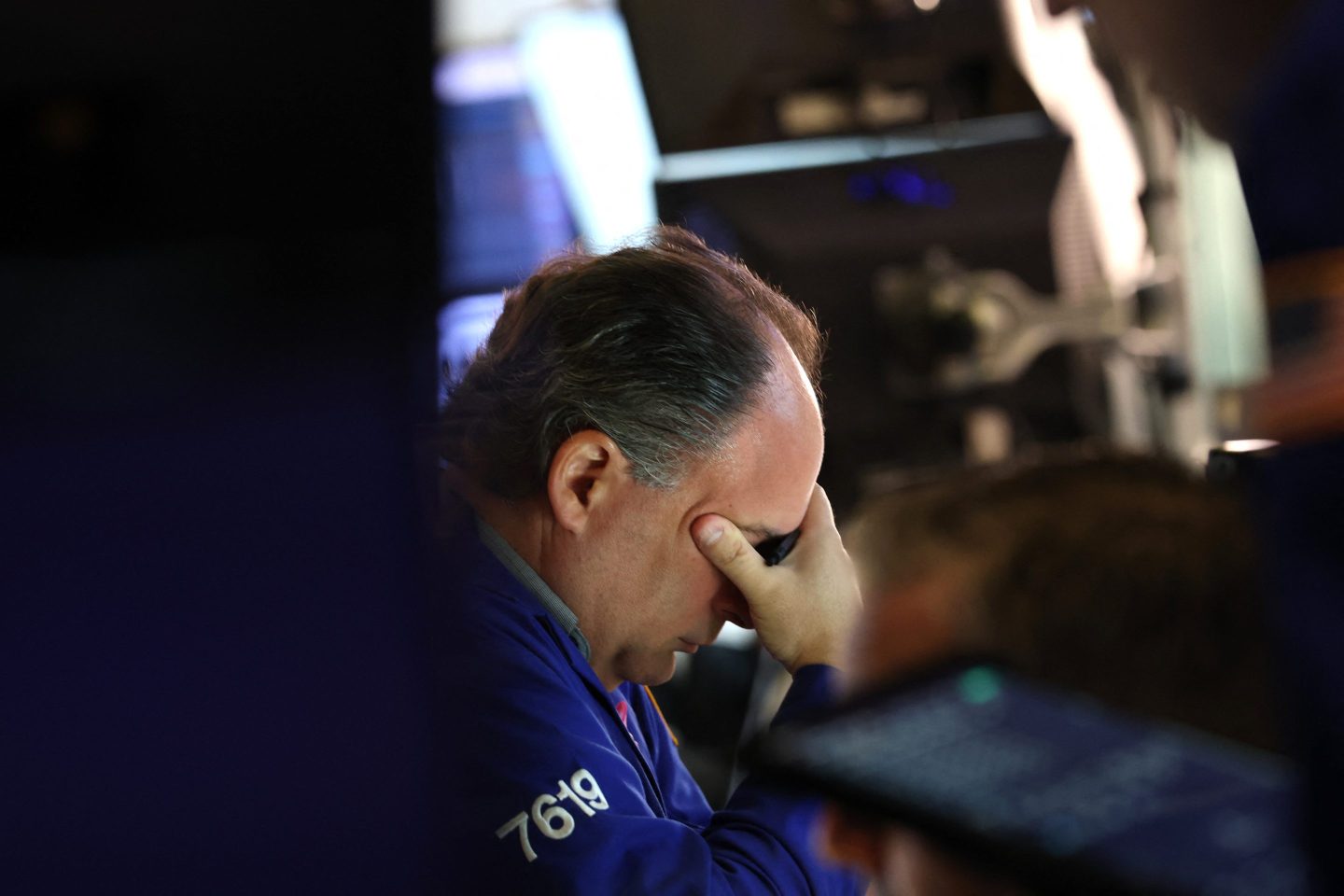- Oxford Economics warned that America’s heavy reliance on tech investment leaves its economy vulnerable if the sector slows. Lead economist Adam Slater said U.S. GDP would have “barely grown” this year without tech, and a downturn could pull growth below 1% in 2026 while dragging global output lower. Though exposure is less severe than during the dotcom crash, Slater cautioned that U.S. Households’ record stock holdings heighten the risk of financial strain if valuations fall.
There may be some divided opinion among economists about the trajectory of the U.S. Economy, but one thing they can agree on is that the tech sector—namely its investment—has been the engine driving U.S. Growth.
Investors, whether they’re businesses or individuals, have had a lot to get excited about in recent years. The rapid development of artificial intelligence has reshaped expectations about how efficiently businesses can operate and what the working world will look like as a result.
But Wall Street has been here before, also with the tech sector. While the dotcom frenzy produced many of the household names we know today, it also proved to be a bubble with trillions of dollars wiped off market valuations.
Analysts are aware that overly bullish expectations may fall flat—even JPMorgan Chase CEO Jamie Dimon has warned some parts of the current investment cycle will ultimately prove to be in a bubble.
But new modeling from Oxford Economics suggests the popping of these expectations may prove to be a wrench in the works for America’s economy.
“The tech sector has been the key driver of recent U.S. Growth, with surging stock prices and heavy investment in equipment and software,” wrote Oxford Economics’ lead economist, Adam Slater, in a note yesterday shared with Coins2Day. “But this leaves the U.S. Vulnerable if tech suffers a downturn—without tech investment, U.S. GDP would have barely grown in H1 2025, and business investment would have actually declined.”
Oxford Economics modeled two scenarios off the back of a tech downturn, an environment where investment slows and stock prices fell in tandem. The first, a U.S.-centered downturn with modest international spillover would see domestic GDP growth fall to 0.8% in 2026—which Slater writes is “flirting with recession.” The ripple effects would also snag the global economy, slowing it from predicted growth of 2.5% in 2026 to 2%.
For scenario two, Oxford Economics modeled wider international equity shocks similar to levels seen in 2002, with the volatility continuing over several quarters. Such ramifications would layer on top of the damages outlined to a more U.S.-centric downturn, with world GDP falling to 1.7% in 2026. Additionally, outside the U.S. The GDP of Mexico and Canada would be significantly adversely affected, as well as Asian economies such as Vietnam, Taiwan, South Korea, and Malaysia.
“In all these economies, GDP is lowered 1.5% or more by 2027 compared to our baseline,” Slater adds.
Exposure smaller than dotcom era
That being said, Slater adds that while a tech downturn would be “far from negligible,” the risks are more contained than in the dotcom bubble.
From an equity perspective, Slater noted, there are a few possible benchmarks. Had tech stocks dropped by dotcom levels in 2021–22 they would have fallen by a third, whereas in December 2024 to April 2025, this would imply a fall of 19%.
“Finally, for tech valuations to reconnect with their own 10-year average would imply a fall (all else equal) of 35%. The average of all these benchmarks suggests a fall in tech stocks of around 25%,” Slater continued. “Although this is much less severe than the dotcom crash … valuations look less stretched than in 2000. And it would still be likely to inflict a severe negative economic blow, not least because U.S. Households are considerably more exposed to an equity selloff than they were 25 years ago.
“Direct and indirect equity holdings are around 250% of U.S. Disposable income, up from 180% in 2000. Fed surveys indicate that around 60% of U.S. Families own stocks, with exposure concentrated among higher-income households who account for 45% to 50% of consumer spending.”













